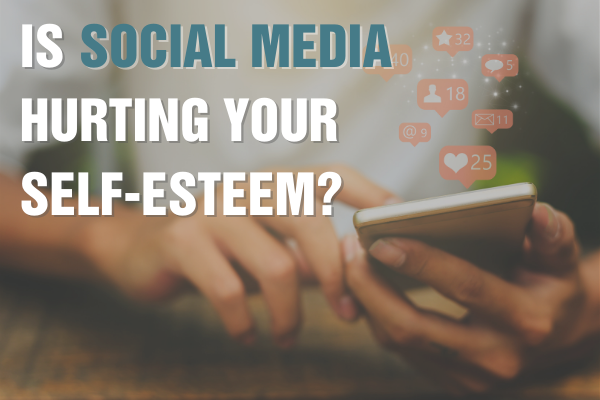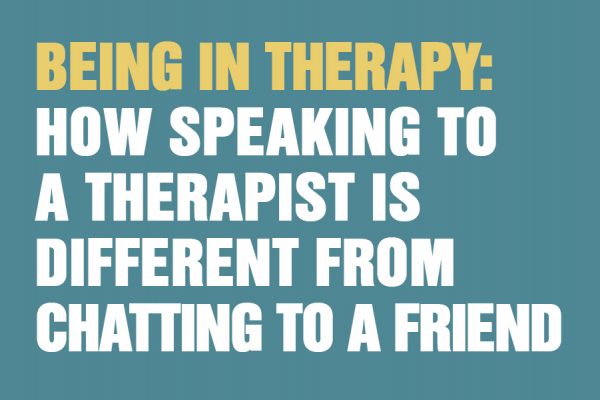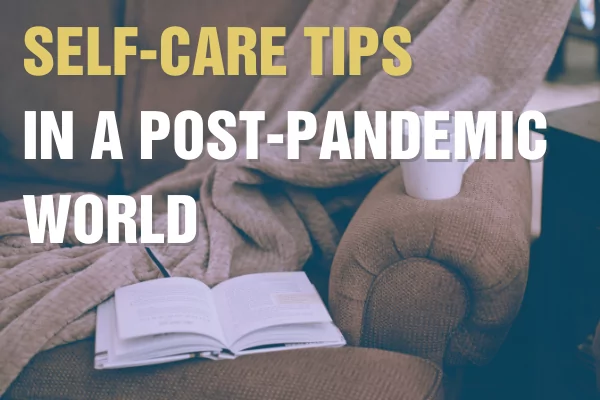The rise of social media has happened so quickly over the last few years that researchers had to scramble to keep up with how it might be impacting our mental health. However, despite the fact that there are not many longitudinal studies into the effects of social media usage on mental health, there are a number of short-term studies that have documented its impact.
The omnipresence of mobile phones and tablets means that we are never too far away from a social media feed. We can constantly update, share, like, and scroll – following the lives of people around the globe.
Through the Covid-19 pandemic, this has been a blessing for many, who couldn’t see their loved ones in-person, however for others, it has had a negative impact. In the first wave of lockdowns, many felt a pressure from those on social media to “make the most” of the lockdown, to learn a new language, write a book, or bake their way through their down-time, and felt guilty if they weren’t doing so.
The Negative Impacts:
When we scroll through social media feeds, such as Facebook and Instagram, we are likely to be confronted with a steady stress of other people’s best moments. Instagram especially is filled with other people’s carefully chosen, edited, and filtered “highlights”. While many of us are aware of this “edited” nature of Instagram and can take what we see with a pinch of salt, there are some who fall into the trap of believing that these photos represent the entirety of that person’s life.
According to Social Comparison Theory (Festinger, 1954), we compare ourselves to others to determine our own social and personal worth. This used to be rather straight forward and adaptive; we could compare our own reading ability to others in our class and change our level of effort accordingly.
Nowadays, however, we are not only comparing ourselves to our neighbours, classmates, and family members, but to strangers all over the world. We are no longer only comparing ourselves to those that are in similar circumstances to us, but to those who might have vastly greater resources and wildly different circumstances. Standards are raised for not only marginalised communities but for people as a whole. You may feel out of place as a member of the LGBT community who doesn’t look like the models they portray within the LGBT media. In this instance, LGBT Therapy can support in not only finding your place in a community but also supporting you in learning to love yourself once more.
Psychology Professor Dr Tim Bono stated that “when we derive a sense of worth based on how we are doing relative to others, we place our happiness in a variable that is completely beyond our control.” The ability that we now have to constantly check social media, means that many have grown up evaluating their own lives based on the polished and edited lives of those that they follow online.
This comparison of real-life to social media posts can be very damaging to our self-esteem. For example, Scope conducted a survey of 1,500 people and found that using Facebook caused over half of the participants to feel inadequate and unattractive. This has been found not only to relate to looks, but also to career success, relationships, and our social lives (Denti, et al., 2012).
Furthermore, McLean et al. (2015) found that adolescent girls who shared more photos, such as selfies, online and used more Photoshop felt worse about their appearance and showed greater eating concerns.
A constant comparison to the perfect can lead to a distorted view of what we expect of ourselves.
The Positive Impacts:
Despite this rather bleak outlook on the impacts of social media on our self-esteem, there are some positive aspects.
Social media allows those who feel isolated or marginalised to reach out and connect with others around the world. For example, groups for the LGBT community, for those with hidden disabilities, for those with certain breeds of puppy, and so on. There are online groups for almost anything, connecting people based on interests and needs.
Another aspect to consider is that much of the research on the connection between social media and mental health is correlational. Meaning that it could very well be the case that those who already suffer with low self-esteem or poor mental health use social media more than others. It is very often those who feel more isolated that turn to social media to feel a sense of connection.
The UK Mental Health Foundation has said that it is “undeniable” that online technologies can be used to reach the most vulnerable people in society. As we have seen through the Covid-19 lockdowns, technology has been used to connect people to loved ones, sources of support, and professional help like never before.
Interestingly, many celebrities and social media personalities are actually using social media to expose how much work goes on behind the scenes of their “perfect” photos: images of them getting ready for events with multiple hair and make-up professionals, stylists, assistants, and so on has shown their followers the reality behind the final shot. Some are even using their social media platforms to expose the unsolicited photoshopping being done to their magazine cover shoots.
Make it work for you
There are ways to make social media work for you and your self-esteem, rather than against it.
- Limit your time on your apps: you might want to use your phones settings to limit the amount of time that you spend scrolling on social media apps. This can help to prevent you from falling down the rabbit hole that social media can become, and remind you to unplug from the online world for a while.
- Curate your feed: you are in control of what you see. If you come away from Instagram feeling down, bad about yourself, or unmotivated, then your feed is not working for you. Try to figure out which accounts are making you feel this way and seriously consider unfollowing them. Your social media feed should be a place where you find inspiration and happiness, not a stick to beat yourself with.
- As you scroll through your feed, ask yourself “does this inspire me? does this bring me joy? Does this teach me anything?” Seek out more accounts that do inspire you, teach you, and bring you joy. They will make your social media accounts more enjoyable places to be.
If you would like professional therapeutic support to help you explore your self-esteem then get in touch with us by calling 020 8673 4545 or emailing [email protected]
We have appointments available at our centres in Clapham and Tooting, seven days a week.








